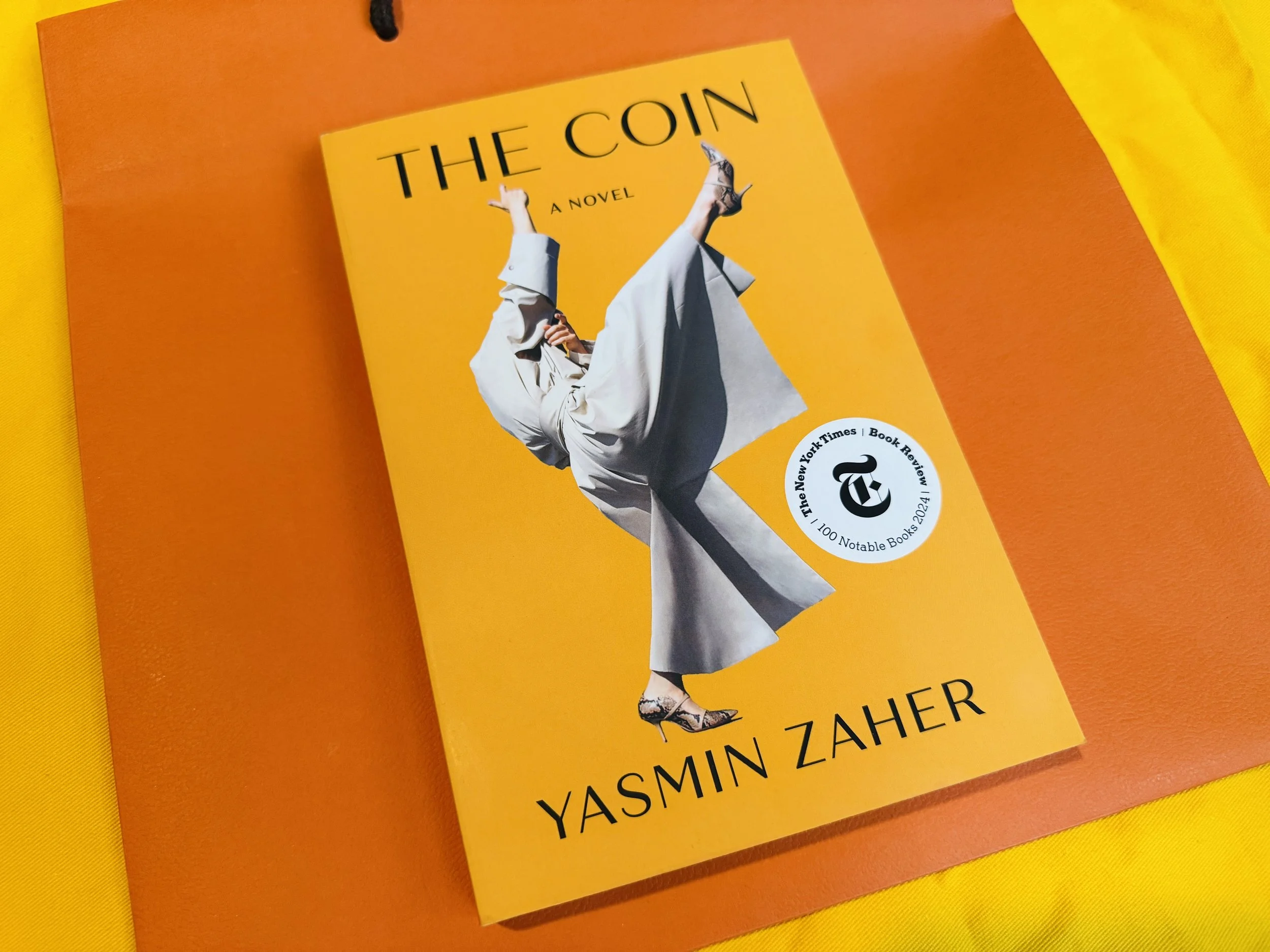Rating: 4.5 stars
As I was flying out of SFO over winter break, I stopped by Compass Books, a well-curated Barnes & Noble independent offshoot. While my kids roamed around, I made my way through the fiction section and came across The Coin. In one simple word, it was fabulous.
The Coin follows a young Palestinian woman living in New York, whose life begins to unravel as her relationship to money, cleanliness, beauty, and power turns increasingly obsessive. Through her work as a teacher and her entanglements with wealth and luxury, the novel examines how identity fractures when control becomes a substitute for meaning.
The novel feels deliberately deranged—a controlled descent into obsession. Zaher fixates on filth and cleanliness and on the unbearable discomfort of believing there is a coin lodged inside her body, resisting logic or medical resolution. The narrator’s CVS Retreat ritual of scrubbing her body for several hours with multiple drugstore detergents, is her attempt at treatment. Her descriptions of curdled skin, soap, dirt, and residue after a bath are visceral - the refuse is her. Why do we become disgusted by what has molted from our bodies, when moments earlier it was an invisible layer inseparable from the self? “I was flushed, clean. I had shed what needed to be shed. At the end of the day it was just garbage. But I had oiled and spiced it up like it was a celebratory leg of lamb.”Paradoxically, as her cleaning compulsions intensify, she begins to intentionally soil both her physical appearance and her reputation.
The coin itself becomes the quiet center of the novel: a lodged object that refuses to be expelled. It represents what cannot be scrubbed away—trauma, class anxiety, displacement, the uneasy inheritance of money and power. Her fixation on cleanliness feels less about hygiene than about control, the hope that if every contaminant is eliminated, something unbearable inside her might finally disappear. The novel insists otherwise.
She moves through men she does not love, yet allows herself to be used, despite her apparent fluency in beauty, class, and their unspoken rules. That contradiction comes into focus with Trenchcoat, a luxury-goods arbitrager she pursues romantically. Through him, she enters a Hermès resale scheme governed by a logic that feels more fixed than nature itself: “Every year, regardless of poverty, war, or famine, the price of the Birkin bag increases.” What begins as satire settles into something colder—luxury as a closed system, impervious to consequence.
The novel reminded me of The Bell Jar—another young woman’s attempt to understand herself beyond accepted norms. While it was gendered expectation for Esther Greenwood’s character, for our narrator in The Coin, wealth, fashion, and education are the catalysts of her undoing. Later on in the novel, the garden she transforms her apartment into becomes an attempt at rebirth. She tries to become one with the earth, and as a reader you feel the devastation of beauty returning to something plain and repulsive. What begins vibrant and alive decays into an odorous heap of rot. Growth and decay are inseparable.
Overall, the writing is compulsively readable and frequently shocking. It reads as if Vogue briefly lost its mind, descended into literary madness, and then re-emerged without explanation. Zaher captures the absurdity of class, the intimacy of obsession, and the uncomfortable truth that self-knowledge does not always arrive gently, or leave us intact.


